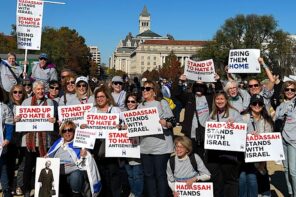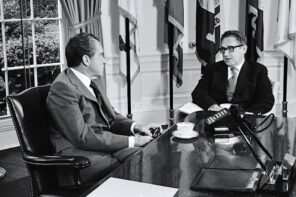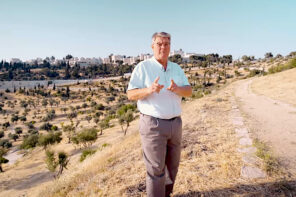A UC Santa Barbara professor is currently in the midst of a political and academic firestorm. In January, sociology professor William I. Robinson sent what he considered to be a provocative email to 80 students enrolled in his sociology of globalization course comparing photographs of Jewish victims of the Holocaust with similar images of Palestinian victims of Israel’s latest Gaza attacks. Robinson, who is Jewish, offered his own written commentary that included the line, “Gaza is Israel’s Warsaw—a vast concentration camp that confined and blockaded Palestinians.”
In the ensuing months, charges of anti-Semitism have been raised and formal complaints have been filed against the professor by two former students and the Simon Wiesenthal Center. And according to the Los Angeles Times, the Anti-Defamation League has called on the professor to repudiate his anti-Semitic statements.
Similarly a number of students and professors have organized on behalf of Professor Robinson to support both his argument and academic freedom. Many believe that reducing the professor’s criticism of Israeli military offensives to anti-Semitism is ridiculous, just as others contend such charges only contribute toward the silencing of critical voices of Israeli policies.
For the sake of full disclosure, I tend to agree with the latter perspective even as I make no attempts to defend Professor Robinson from charges of anti-Semitism (I neither claim to know this professor nor what animates his criticisms). But I also believe that this case offers us another reason why it is important for advocates of human rights and justice to remain contextually specific in their defense of a particular issue. Though some believe themselves to be creative or provocative in making direct correlations between the suffering and horrors of respective groups, it just seems to me that too much gets lost in translation.
Whether its “gays as the new black” or “Gaza as the new Warsaw,” emotions on both sides get inflamed in such a way that the topic at hand is obscured at best. [See: “Hitching a Freedom Ride: Gay Ain’t the New Black,” April 1, 2009, and the response: “Gay or Black, It’s Still Church-Sanctioned Discrimination,” April 20, 2009]
The issues for me are not about challenging creative license or engaging in a comparative “Olympics of suffering.” I am concerned, however, with keeping track of those who find themselves victimized by state oppression. Yet when we make pedagogically provocative (though possibly hackneyed) correlations with little historical specificity or sophistication, the conversation ends up exactly where Professor Robinson never intended it to be. We are debating anti-Semitism and academic freedom rather than discussing the the destruction of innocent lives of Palestinian men, women and children.
So, again, I raise the question: Are such comparative analogies even worth it?




